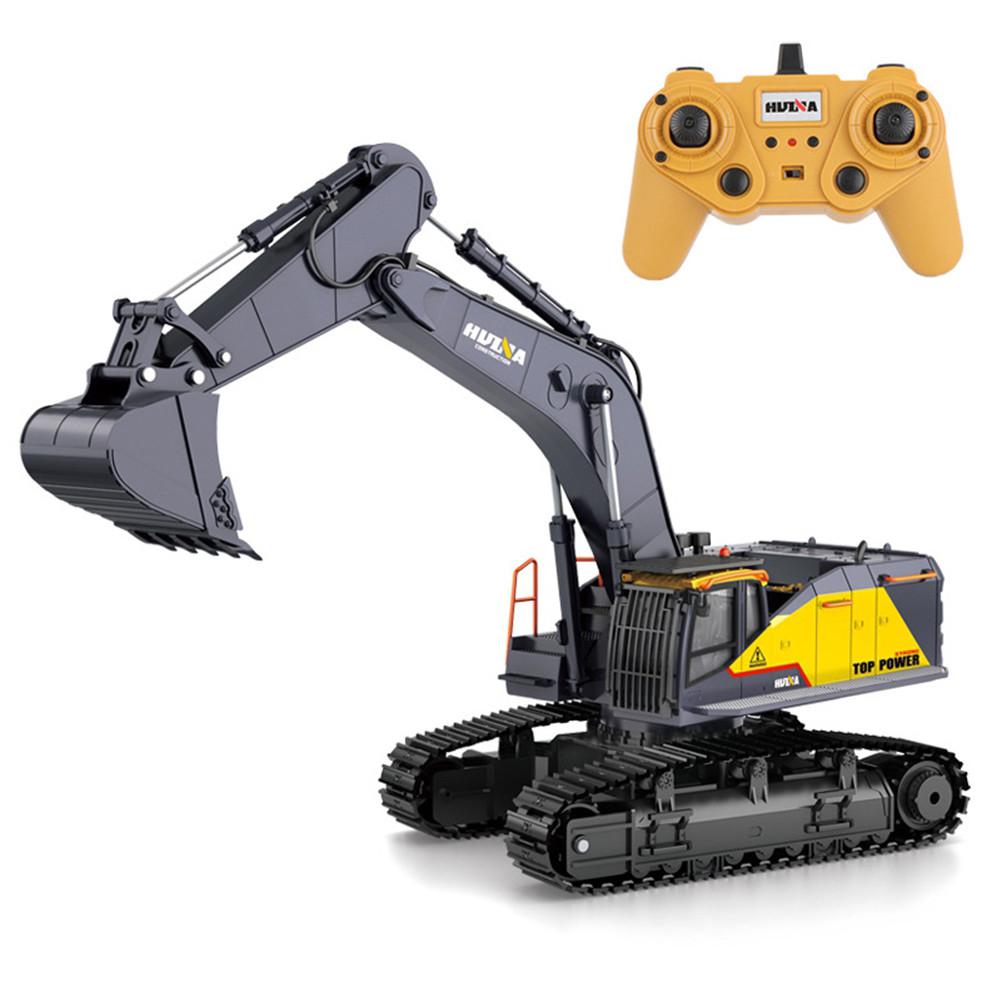Discover the Relevance of Excavator in Modern Building And Construction Projects
Excavators are crucial tools in modern building and construction projects. Their adaptability allows them to carry out a vast range of tasks, from excavating and grading to demolition and site preparation. Advanced features, such as hydraulic accessories and general practitioners, improve their capacities and efficiency on job websites. As the market develops, the relevance of excavators expands even more. Comprehending their duty can disclose understandings right into the future of building techniques. What lies ahead for these devices?
The Adaptability of Excavators in Numerous Projects
Excavators are often connected with large-scale building and construction projects, their versatility permits them to be made use of in a broad range of applications, from domestic landscaping to utility upkeep. In city setups, excavators can navigate tight areas to dig foundations for homes or mount water drainage systems. Their capacity to do delicate jobs makes them excellent for landscape design jobs, where they can excavate for fish ponds or plant trees. In addition, excavators play a vital function in utility maintenance, effectively excavating trenches for pipelines or cable televisions without interrupting bordering areas. In farming applications, they help in land clearing and dirt prep work. Their versatility allows them to be equipped with numerous add-ons, improving their capability across various tasks. This complex nature of excavators not only improves different building and construction processes but likewise shows their indispensable duty in modern-day framework development and maintenance.
Key Features and Kinds Of Excavators
The discussion on key features and kinds of excavators highlights the crucial features that make these makers indispensable in construction. Various excavator kinds, each created for details tasks, show their adaptability and efficiency across various applications. rc excavator. Recognizing these classifications and functions is vital for enhancing their use in modern building projects
Excavator Keys In Overview
Excavators play a critical function in contemporary building, using convenience and efficiency across numerous jobs. These hefty equipment systems been available in several kinds, each tailored for specific applications. The most common types include crawler excavators, known for their security on uneven terrain, and rolled excavators, which give higher wheelchair on paved surfaces. Miniature excavators are favored for limited rooms and small-scale tasks, while long-reach excavators are designed for deep excavating. In addition, there are customized excavators, such as hydraulic excavators, which boost power and precision. Each kind features one-of-a-kind capabilities, making them important for jobs varying from digging and grading to demolition and product handling. Comprehending these variations allows construction professionals to pick the ideal excavator for their job needs.
Trick Features Explained
Understanding the vital functions of excavators improves their effective application in construction tasks. Excavators are identified by their powerful hydraulic systems, which give the required pressure for excavating, lifting, and moving materials. Their expressed arms enable a large variety of movement, facilitating specific procedures in confined rooms. Furthermore, the variety of add-ons, such as buckets, grapples, and augers, increases their adaptability to fulfill different project demands. The size and weight of excavators likewise add to their stability and ability to move on different surfaces. In addition, advancements in modern technology have caused the integration of general practitioner and automation, improving precision and performance in excavation tasks. These features jointly position excavators as essential devices in modern building.
Applications in Building and construction
Changing building and construction sites, excavators play an essential function throughout various applications, ranging from household building projects to massive infrastructure advancements. These flexible equipments are geared up for jobs such as digging foundations, trenching for utilities, and site grading. Different sorts of excavators, consisting of crawler, rolled, and mini excavators, supply details advantages customized to the task requirements. Crawler excavators stand out in harsh terrains, while rolled excavators supply movement on paved surfaces. Tiny excavators are ideal for confined areas, making them popular in metropolitan setups. The performance and power of excavators substantially quicken construction processes, making sure prompt task completion. Their versatility further enhances their importance, allowing construction groups to deal with a diverse array of challenges effectively.
Enhancing Performance and Performance on Task Sites
Making the most of efficiency and performance on work sites is an important objective in modern-day building. Excavators play a critical function in accomplishing this goal by simplifying numerous tasks. Their ability to do several functions-- such as training, grading, and excavating-- decreases the demand for additional devices, therefore saving time and resources.Moreover, excavators enhance workflow by permitting faster completion of projects. With innovative features like hydraulic add-ons and GPS technology, they can implement accurate procedures that reduce mistakes and rework. This accuracy not only enhances the top quality of work however also maximizes material usage, adding to set you back savings.The adaptability of excavators allows them to adjust to different website conditions, making certain that tasks proceed smoothly despite challenges. By incorporating excavators right into construction procedures, groups can considerably enhance their overall efficiency, bring about timely task completion and enhanced productivity.
Safety Advantages of Utilizing Excavators
Excavators significantly boost security on building sites through improved driver exposure and minimized manual work dangers. By providing drivers with a clear sight of their surroundings, excavators help to stop accidents and injuries. Furthermore, the machinery reduces the need for workers to involve in unsafe manual tasks, even more advertising a more secure job setting.
Improved Driver Exposure
Construction websites can be disorderly and filled with potential threats, boosted driver exposure plays a vital function in making sure security when using excavators. Modern excavators are made with huge, unblocked windows and tactically put mirrors, allowing operators to preserve a clear view of have a peek at this website their environments (rc excavator). This boosted presence is important for identifying pedestrians, other equipment, and numerous obstacles, considerably lowering the risk of crashes. Furthermore, many excavators integrate advanced innovation, such as sensing units and cams, to offer operators with added perspectives, better original site boosting understanding. The ability to see even more clearly not just aids in reliable operation however also promotes a safer workplace, making it less complicated for operators to browse complex construction websites without compromising security standards
Reduced Manual Labor Risks
When hand-operated labor is reduced with the usage of excavators, various safety advantages emerge, markedly improving the health of construction workers. Excavators minimize the physical stress related to hefty lifting and repeated jobs, properly decreasing the danger of bone and joint injuries. By automating processes such as excavating, grading, and moving products, they allow workers to preserve a much safer range from possible threats. Furthermore, excavators are geared up with innovative safety and security features, such as rollover security systems and enhanced operator functional designs, which even more protect employees on website. The result is a considerable reduction in work environment accidents and injuries, causing boosted performance and spirits among building teams. Eventually, the adoption of excavators adds to a much safer and extra effective building setting.
Excavators in Earthmoving and Site Prep Work
In modern-day building and construction, a considerable part of earthmoving and website prep work tasks depends on the performance and adaptability of excavators. These equipments are created to manage numerous soil kinds and terrain, making them indispensable for rating, digging, and trenching activities. Their hydraulic arms can be equipped with various add-ons, such as augers and containers, allowing drivers to personalize their approach based upon particular task requirements.Excavators succeed at moving big volumes of planet promptly and effectively, which accelerates the total building timeline. They can navigate limited spaces and testing websites where typical tools might have a hard time, enhancing efficiency. Additionally, the accuracy of excavators warranties that website prep work adheres to rigorous specifications, reducing the threat of errors that could lead to expensive rework.
The Function of Excavators in Demolition Tasks
Excavators play an important role in demolition tasks, as they possess the power and agility required to take apart frameworks effectively. Equipped with different add-ons such as hydraulic breakers, shears, and grapples, these machines can adapt to different demolition needs, whether for small buildings or huge industrial sites. Their adaptability makes it possible for operators to tackle complicated projects while preserving security and precision.In enhancement to their demolition capabilities, excavators assist in particles elimination, guaranteeing that job websites continue to be well organized and safe. By breaking down frameworks into manageable items, they allow for streamlined clearing and recycling of materials, aligning with modern sustainability efforts.Moreover, excavators additional reading can access tight areas and navigate uneven terrain, making them crucial in urban demolition jobs. On the whole, their durable layout and multifunctionality make excavators a crucial asset in the demolition phase of construction, adding substantially to task timelines and performance.


Future Trends in Excavator Modern Technology and Use
As the building and construction industry develops, innovations in excavator modern technology are poised to change their usage and performance substantially. One significant trend is the assimilation of automation and synthetic intelligence, allowing excavators to run with very little human intervention. This change will enhance precision in tasks such as grading and trenching, decreasing human error and boosting productivity.Additionally, the increase of electrical and hybrid excavators is forming a more lasting construction atmosphere, lowering carbon emissions and gas expenses. Boosted telematics systems are also arising, enabling real-time tracking of machine performance and upkeep needs, which can cause far better functional efficiency and longer tools lifespan.Moreover, improvements in attachment innovation are broadening the convenience of excavators, allowing them to perform a wider variety of tasks. The combination of these trends demonstrates a future where excavators are smarter, greener, and more adaptable, ultimately reshaping building task characteristics.
Frequently Asked Inquiries
Exactly How Do Excavators Compare to Other Building And Construction Machinery?
Excavators, characterized by their versatility and power, master digging and earthmoving contrasted to other equipment. Their capacity to carry out different tasks, consisting of training and demolition, makes them crucial in construction jobs, improving general effectiveness.

What Is the Typical Lifespan of an Excavator?
The ordinary life expectancy of an excavator normally ranges from 7,000 to 10,000 operating hours, depending on upkeep, usage problems, and version. Proper care can expand this lifespan, ensuring peak efficiency throughout its operational years.
Just How Are Excavators Preserved for Optimum Performance?
Excavators require regular upkeep for peak efficiency, consisting of regular examinations, liquid checks, filter replacements, and timely repairs. Executing a precautionary maintenance routine aids prolong their lifespan and warranties efficient operation in various building atmospheres.
What Are the Expenses Related To Purchasing an excavator vs. renting?
The costs related to buying an excavator versus renting differ substantially. Renting offers reduced upfront expenditures but can collect over time, while buying calls for a significant preliminary investment, but provides lasting financial savings and asset ownership benefits.
What Training Is Required to Operate an Excavator?
Operating an excavator needs specialized training, commonly including safety and security methods, equipment procedure methods, and environmental understanding. Certification programs usually mandate functional experience, making it possible for operators to take care of numerous tasks efficiently while making certain conformity with sector guidelines. The most common kinds consist of crawler excavators, recognized for their stability on irregular terrain, and rolled excavators, which give greater flexibility on paved surface areas. Small excavators are preferred for limited areas and small-scale tasks, while long-reach excavators are developed for deep digging. Additionally, there are specialized excavators, such as hydraulic excavators, which improve power and accuracy. Different kinds of excavators, consisting of spider, rolled, and mini excavators, provide certain benefits customized to the task demands. Spider excavators succeed in rough terrains, while wheeled excavators offer movement on smooth surfaces.